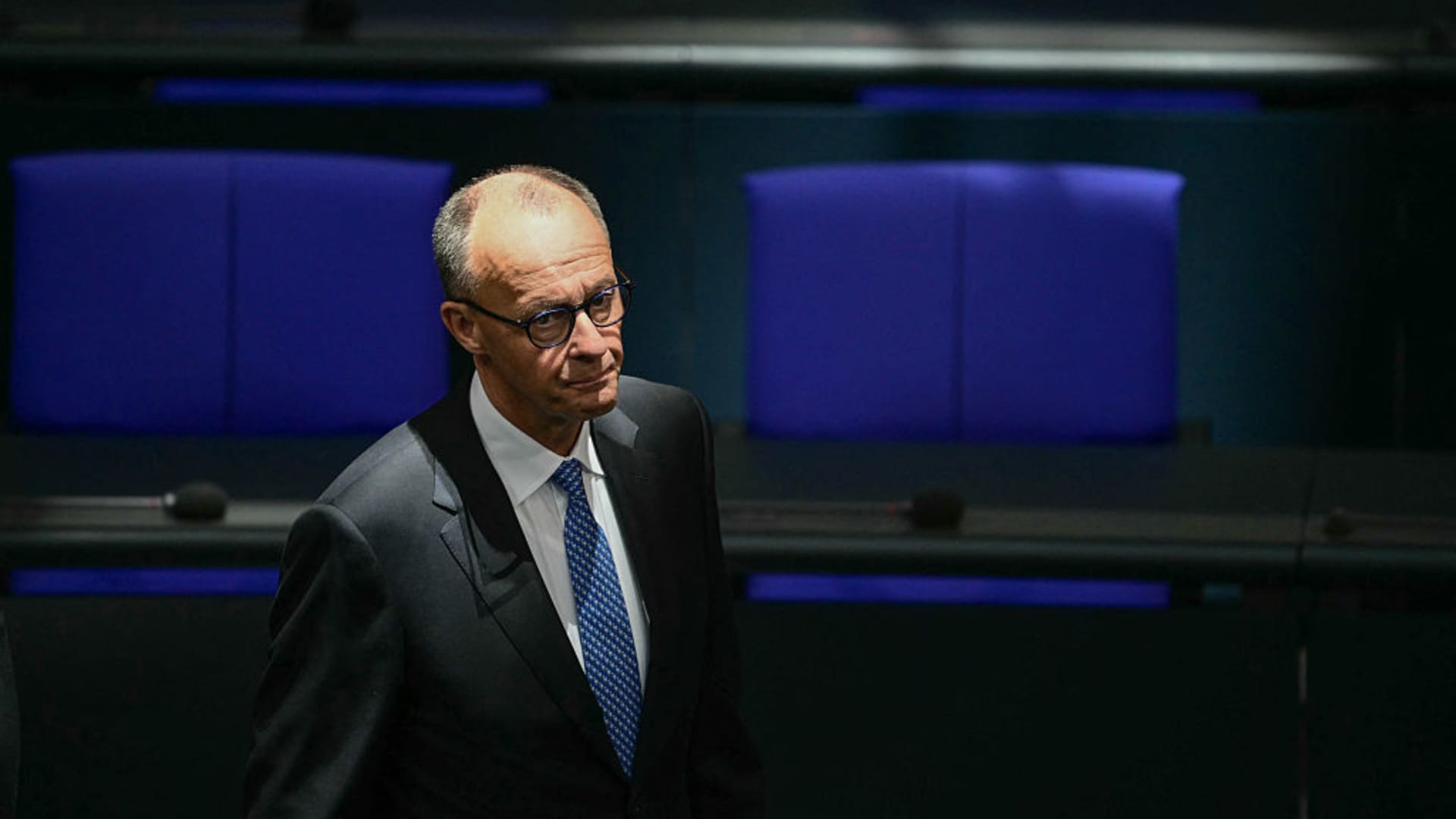The Unprecedented Election of Friedrich Merz as German Chancellor
An Unexpected Turn of Events
Tuesday’s political landscape in Germany was nothing short of seismic. Friedrich Merz, the conservative leader, found himself six votes short of the required 316 in the first round of parliamentary voting to become the country’s next chancellor. This unprecedented event sent shockwaves through the political establishment, leaving many to question the stability of the new coalition government.
A Historic First
Merz’s failure to secure the chancellorship in the first round marked a historic first in Germany’s postwar history. No chancellor-designate had ever fallen short of an absolute majority in the initial vote. Despite the conservative alliance of the Christian Democratic Union (CDU) and the Christian Social Union (CSU) topping the polls in February with 28.5% of the vote, this did not translate into the necessary parliamentary support. The unexpected defeat plunged the Bundestag into turmoil, with members scrambling to understand the implications of Merz’s setback.
The Aftermath of the First Vote
The immediate aftermath was one of confusion and uncertainty. The Bundestag, Germany’s lower house of parliament, was in disarray. Merz, who had been widely expected to glide to victory, found himself in uncharted territory. The failure to secure the chancellorship in the first round was described by some as a “complete catastrophe” and a “humiliating” setback for Merz and his coalition. The political establishment was left reeling, and the stability of the new government hung in the balance.
The Second Round of Voting
In a dramatic turn of events, the Bundestag convened for a second vote later in the day. This second round was pivotal for Merz and his coalition, offering a chance to secure the necessary majority. The vote was a nail-biter, with the outcome hanging in the balance until the final moments. Ultimately, Merz secured 325 votes, just above the 316 needed, and was elected as Germany’s new chancellor. The relief was palpable, but the narrow margin of victory raised questions about the stability of the new government.
The Implications of the Second Vote
The second vote was a dramatic and unprecedented event in German politics. Merz’s ability to secure the necessary votes in the second round highlighted his resilience and the strength of his coalition. However, the narrow margin of victory and the unexpected setback in the first round underscored the deep divisions within the Bundestag. The challenges that Merz and his coalition will face in the coming months are significant, and the political turmoil of recent days serves as a stark reminder of the unpredictability of German politics.
A Narrow Victory
Merz’s victory in the second round was narrow, with a margin of just nine votes. This slim victory underscores the deep divisions within the Bundestag and the challenges that lie ahead. The fact that Merz was able to secure the necessary votes in the second round is a testament to his leadership and the strength of his coalition. However, the narrow margin of victory serves as a reminder of the political turmoil that has gripped Germany in recent days.
The Road Ahead
As Merz prepares to take the reins of Germany’s government, he faces a series of significant challenges. The economy is struggling with its longest post-war downturn, relations with key allies such as the United States are strained, and the far-right is gaining momentum. Merz will need to navigate these challenges with a deft hand, balancing the needs of his coalition with the demands of the German people. The road ahead is fraught with difficulties, but with a steady hand and a clear vision, Merz has the potential to guide Germany through these turbulent times.
A New Chapter
The election of Friedrich Merz as Germany’s new chancellor marks the beginning of a new chapter in the country’s political history. The unprecedented events of Tuesday serve as a reminder of the unpredictability of politics and the importance of resilience in the face of adversity. As Merz takes the helm of Europe’s largest economy, he will need to draw on his experience and leadership to guide Germany through the challenges that lie ahead.
Conclusion
A Resilient Leader Emerges
The election of Friedrich Merz as Germany’s new chancellor is a testament to his resilience and the strength of his coalition. The unprecedented events of Tuesday served as a reminder of the unpredictability of politics and the importance of perseverance in the face of adversity. As Merz takes the reins of Germany’s government, he will need to draw on his experience and leadership to navigate the challenges that lie ahead. The road ahead is fraught with difficulties, but with a steady hand and a clear vision, Merz has the potential to guide Germany through these turbulent times and into a brighter future. The political landscape may be uncertain, but one thing is clear: Friedrich Merz’s journey to the chancellorship is a story of resilience, determination, and the unyielding spirit of German politics.








